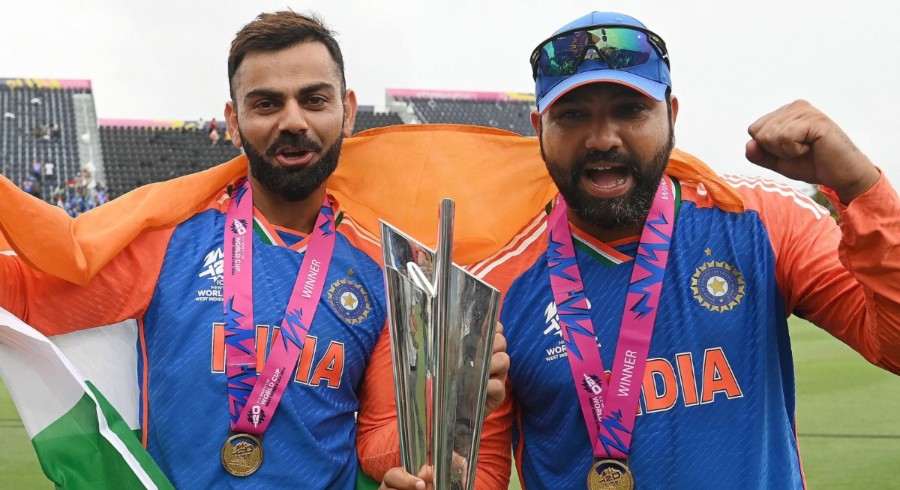Kohli revealed that he encouraged Rohit to hold the World Cup trophy, allowing them to celebrate the win together
 PHOTO: AFP
PHOTO: AFP
Virat Kohli shared the story behind the iconic photo with Rohit Sharma after India’s dramatic seven-run victory over South Africa in the T20 World Cup 2024 final.
Kohli revealed that he encouraged Rohit to hold the World Cup trophy, allowing them to celebrate the win together.
Kohli and Rohit have both been pivotal figures in Indian cricket, consistently delivering outstanding performances across different formats for many years. While Rohit was part of India's squad that won the first T20 World Cup in 2007, Kohli had not yet debuted for India. Four years later, Rohit missed out on the 2011 ODI World Cup team, in which Kohli was a member. The two did celebrate a Champions Trophy win together in 2013, but a World Cup celebration had always eluded them until this victory in the Caribbean.
To commemorate this special moment, the two cricketers posed for a photo holding the T20 World Cup trophy with the Indian flag draped behind them. Speaking about the memorable photo, Kohli mentioned that he noticed Rohit, who had his daughter Samaira on his shoulder, staying in the background during the victory celebrations. Kohli encouraged him to take center stage and hold the trophy.
"It was a very special thing for him [Rohit] as well. His family is here, Samaira [Rohit's daughter] was on his shoulder. But I just felt like in the victory lap he was behind the whole time. I told him, you also hold the trophy for a while, for two minutes. We should take a picture together because this journey has been very long," Kohli revealed in a video shared by Star Sports.
Both Rohit and Kohli have since announced their retirements from T20I cricket following India's triumph in the T20 World Cup. They end their T20I careers as the top two run-scorers for India. Rohit played 159 matches, scoring 4,231 runs at an average of 32.05 and a strike rate of 140.89. Kohli, in 125 T20Is, amassed 4,188 runs at an average of 48.69 and a strike rate of 137.04.